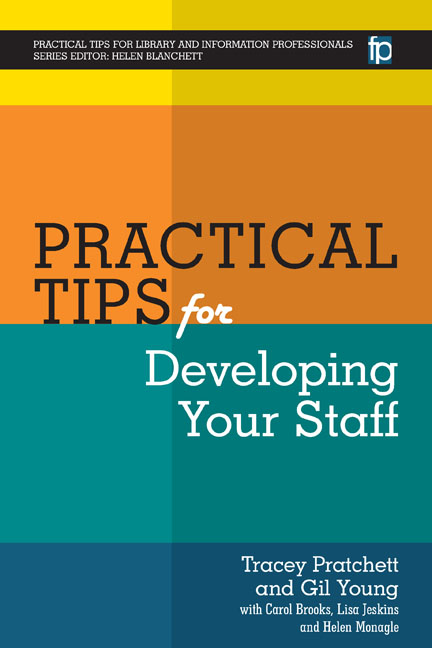Book contents
- Frontmatter
- Contents
- List of figures and tables
- Acknowledgements
- The authors
- List of abbreviations
- Series Editor's introduction
- Introduction
- Section 1 Theories
- Section 2 Infrastructure
- 11 Why develop staff?
- 12 Workforce planning
- 13 Job descriptions
- 14 Person specifications
- 15 Advertisements
- 16 Shortlisting
- 17 Interviews
- 18 Interviews – presentations and tests
- 19 Interviews – feedback
- 20 Inductions
- 21 Managing performance
- 22 Team development plans
- 23 Appraisals – preparing
- 24 Appraisals – conducting
- 25 Setting objectives
- 26 One-to-ones
- 27 Feedback – general
- 28 Team building
- 29 Team meetings
- 30 Sharing learning with the team
- 31 Writing references
- 32 Exit interviews
- 33 Effective handover
- Section 3 Activities and tools
- Index
19 - Interviews – feedback
from Section 2 - Infrastructure
Published online by Cambridge University Press: 09 June 2018
- Frontmatter
- Contents
- List of figures and tables
- Acknowledgements
- The authors
- List of abbreviations
- Series Editor's introduction
- Introduction
- Section 1 Theories
- Section 2 Infrastructure
- 11 Why develop staff?
- 12 Workforce planning
- 13 Job descriptions
- 14 Person specifications
- 15 Advertisements
- 16 Shortlisting
- 17 Interviews
- 18 Interviews – presentations and tests
- 19 Interviews – feedback
- 20 Inductions
- 21 Managing performance
- 22 Team development plans
- 23 Appraisals – preparing
- 24 Appraisals – conducting
- 25 Setting objectives
- 26 One-to-ones
- 27 Feedback – general
- 28 Team building
- 29 Team meetings
- 30 Sharing learning with the team
- 31 Writing references
- 32 Exit interviews
- 33 Effective handover
- Section 3 Activities and tools
- Index
Summary
PROVIDING FEEDBACK IS an important part of the selection process. It should be offered, as a matter of course, to both successful and unsuccessful candidates. In the case of the successful candidate this is best done face to face as part of the induction process. With unsuccessful candidates it is generally more practical to deliver feedback via a phone call or, if this is not possible, e-mail. This should take place as soon as possible after the selection process has ended.
Giving constructive feedback to unsuccessful candidates is important from the organizational perspective as it confirms that the organization has taken the whole selection process seriously. Providing feedback is a means of acknowledging that individuals have put time and effort into the process even though they have not been successful. It means that unsuccessful candidates will be able to learn from the process they have just participated in and will, hopefully, have a better chance of securing the next role they interview for.
As stated in Tip 17 (p. 39), the panel should agree in advance who will inform the candidates of the outcome of the process and decide how feedback will be provided. It is suggested that unsuccessful candidates are informed of the outcome and then asked if they would like feedback. If they say yes a time should be agreed when the person delivering the feedback can contact them to provide this.
The feedback needs to be related back to the person specification and describe how the individual fared with regard to each of the criteria. It should focus on the individual, include specific examples and, if appropriate, include suggestions as to how the candidate could improve future performance. It should not take the form of a comparison with the successful candidate. Verbal feedback is generally a better option as it gives the candidate the opportunity to seek clarification of the points being made and to express their opinion of the process. Verbal feedback can be followed up with a written statement of the main points made if the candidate requests it. The CIPD (2012) have produced a useful model of delivering effective feedback to unsuccessful candidates which is reproduced in Figure 19.1.
- Type
- Chapter
- Information
- Practical Tips for Developing Your Staff , pp. 45 - 48Publisher: FacetPrint publication year: 2016



